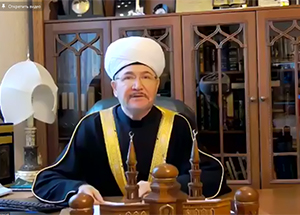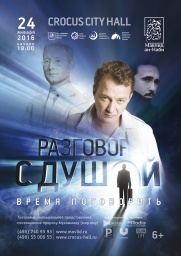 Speech by Mufti Sheikh Ravil Gainutdin at the 13th International Research and Practical Conference "Galimjan Barudi Readings" entitled "Interpretation of Sunnah: diverse approaches in Islamic theology":
Speech by Mufti Sheikh Ravil Gainutdin at the 13th International Research and Practical Conference "Galimjan Barudi Readings" entitled "Interpretation of Sunnah: diverse approaches in Islamic theology":
بسم الله الرحمن الرحيم
الحمد لله رب العالمين
والصلاة والسلام على محمد رسولنا آله وصحبه أجمعين.
أما بعد
السلام عليكم ورحمة الله وبركاته.
In the name of Allah, the most Beneficent, the most Merciful!
Praise be to Allah, the Lord of the worlds! Peace and blessings be upon our Prophet Muhammad ﷺ, his family and all companions! May peace, mercy of Allah and His blessings be upon you!
Dear conference participants and guests!
I am pleased to welcome you to this event dedicated to the interpretation of prophetic sayings. This topic remains extremely relevant and is related to the key aspects of Islam. Allah has created the world in a perfect way, insofar as the human mind can perceive it.
The human mind has to acknowledge the existence and supremacy of One God, who has no equal or rivals. Religion, which can be defined as a divine order that directs people to performing good deeds, also encourages us to obey and serve God.
Religion, which also incorporates a large number of individual and social principles of faith and morality, teaches people how to serve God. This is demonstrated by the following Qur'anic verses:
نَّا أَنزَلْنَا إِلَيْكَ الْكِتَابَ بِالْحَقِّ فَاعْبُدِ اللَّهَ.
مُخْلِصًا لَّهُ الدِّينَ.
"Indeed, We have sent down to you the Book, [O Muhammad], in truth. So worship Allah, [being] sincere to Him in religion." (Sura 39 al-Zumar, verse 2).
وَمَا أُمِرُوا إِلَّا لِيَعْبُدُوا اللَّهَ مُخْلِصِينَ لَهُّينحُنَفَاءَ وَيالدِِيمُوا الصَّلَاةَ وَيُؤُقُوا.
الزَّكَاةَ وَذَلِكَ دِينُ الْقَيِّمَةِ.
"And they were not commanded except to worship Allah, [being] sincere to Him in religion, inclining to truth, and to establish prayer and to give zakah. And that is the correct religion." (Sura 98 al-Bayina, verse 5).
It is a noble example that encourages people to be virtuous. This example brings about humility in souls and helps to find the right reference point in this world. Every Muslim tries to follow the path of the prophetic Sunnah. The Qur'an says:
أَوَعَجِبْتُمْأَن جَاءُْمَك ذِكْرٌمِنْ رَبّْكُمِ عَلَىٰ رَجُلٍ مِنْكُمْ لِيُنْذِرُْمَك وَلِتَتَّقُوا وَلَعَلَّكُمْ تُرْحَمُونَ.
"Then do you wonder that there has come to you a reminder from your Lord through a man from among you, that he may warn you and that you may fear Allah so you might receive mercy."" (Sura 7 al-Araf, verse 63).
The Sunnah is a collection of sayings and actions of the Prophet, including those intended to demonstrate certain verses of the Qur'an, as well as to complete the gaps and clarify some obscure verses. In this regard, the interpretation of hadiths (the words of the Prophet Muhammad, peace and blessings of Allah be upon him) is a very important question that was addressed by numerous outstanding Muslim scholars throughout different historical periods.
The traditional classification of hadiths (sahih, hasan, da’if and fake) is based on a thorough study of the isnad, that is the chain of narrators. At the same time, even the most reliable chains of narrators might contain contradictory information; moreover, it is known that Sahaabs (companions of the Prophet ﷺ) had discussions regarding the same act or saying of the Messenger of Allah ﷺ. Therefore, it is not easy to determine which hadith and its interpretation should be applied in Islamic law. This is why hadith studies have always been complemented with fiqh — Islamic jurisprudence that took into account not only the verses of the Qur’an and the Prophet’s ﷺhadiths, but also used other tools to find answers to complex questions (scholars’ opinion, judgment by analogy, principle of preference of the best, social benefit, traditional norms of a society). For this reason the Shariah, being a set of rules of Islamic law, proved to be very flexible and managed to fit in the realities of the Middle Ages and contemporary times, Muslim theocratic states and Muslim minorities in secular countries.
At different times and in different societies there existed different views on how the hadiths should be studied and applied. Several schools of Islamic law formed based on these opinions. These schools adopted a very strict attitude, striving to implement the literal meaning of hadiths at all costs, regardless of the circumstances, without even paying attention to their polysemy. Over time most of these literalist schools simply disappeared, and the Hanbali school that has survived to this day faced the need to reform its ideas with regard to theological judgments.
I would like to emphasize that the Ummah’s memory about the Prophet ﷺ is a living memory. We cannot imitate the prophetic example mechanically. The prophetic Sunna reflects a certain way of acting. In this regard it is very important to reproduce a holistic image of the Prophet, which requires not only the assessment of the reliability of the chain of narrators, but also an assessment of explanations.
The overwhelming majority of religious scholars initially concluded that hadith should only be considered in the light of an appropriate explanation (sharh). Any hadith has its context: it relates to a particular environment, place and occasion. In other words, a hadith might lose its relevance over time. Or, for instance, the words pronounced before the Prophet left Mecca might be no longer relevant in Medina. This situation is fully consistent with the course of time, since both Sunnah and the Quran contain so-called cancelled provisions (mansuh). For this reason, almost any hadith must be accompanied by a sharh (a comment of a scholar), so that it is possible to make a correct judgement based on comprehensive understanding of the situation, rather than simply examining the isnad for its reliability. This is the key difference between specialists in hadith studies and Islamic legal studies.
Over time these obvious issues developed in a proper and balanced way in the Muslim society: thus, the muhaddiths and fakihs addressed different topics, without contradicting each other. However, today we often see that religious leaders and activists (who are not experts in fiqh or sharh) demand adjustments to be made to legal provisions based on their narrow, literal understanding of hadiths. This does not contribute to improving the situation in Muslim countries, which are already experiencing social and political difficulties.
For this reason, explaining the role and place of each particular hadith can be considered as a part of the mission of contemporary Islamic scholars and imams.
I would like to mention a hadith from the collections of Bukhari and Muslim, which was narrated by Abu Hurairaira. It is reported that the Prophet said the followingﷺ:
اسْتَوْصُوا بالنِّساءِ خَيْرًا؛ فَإِنَّ المرأة خُلِقَتْ مِن ضِلعٍ، وَإنَأعْوَجَ ّ في الضِّلَعِ عْلاهُمَا فَإنْ ذَهَبتَ تُقيم،ُ كَسْتَهُُه وإن تركته، لم لم يزل أعوج، فاستوصوا بالنساء.
" Treat women kindly. The woman has been created from a rib (the rib is crooked), and the most crooked part of the rib is in the upper region. If you try to make it straight, you will break it; and if you leave it as it is, it will remain curved. So treat women kindly”.
If you take this hadith literally, you can say that the woman was made of a rib bone. This contradicts both logic and human anatomy. However, if you take it figuratively, you will reveal a completely different meaning. According to the famous Russian theologian Musa Jarullah Bigiev, this hadith does not mean that a woman was made of a bone; it means that women are very fragile, so you should not oppress them, you should respect their rights, forgive their mistakes and sometimes tolerate their bad mood.
Similarly, sharh should be applied to the majority of hadiths, so that their real meaning does not contradict either prophetic wisdom or human knowledge.
Dear participants of the conference, I pray that God Almighty Allah increases our knowledge and shows us how to benefit from it. I wish you productive work and achievement of your goals.
May peace, mercy of Allah and His blessings be upon you!
 Mawlid an-Nabi in Crocus City Hall
Mawlid an-Nabi in Crocus City Hall
